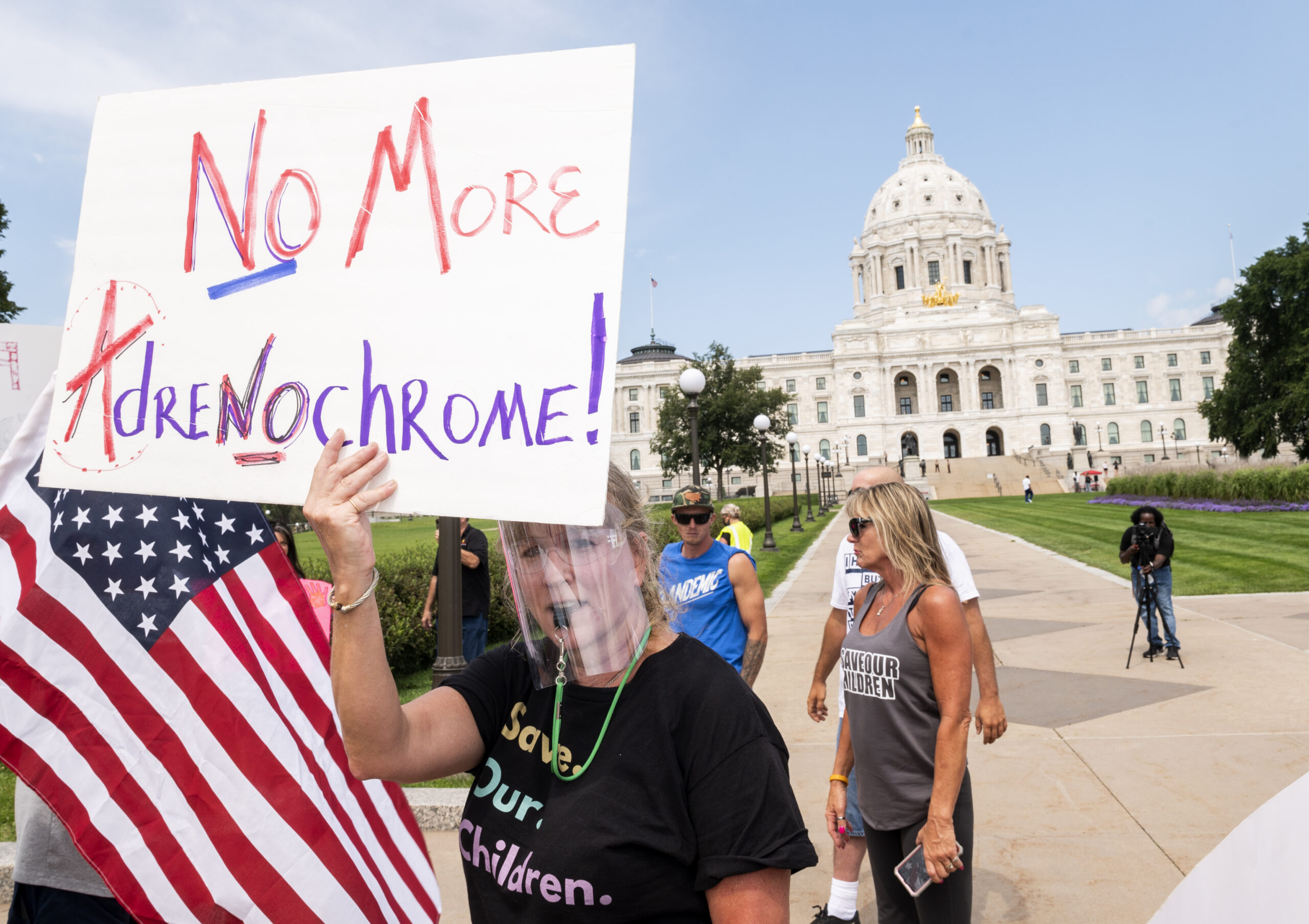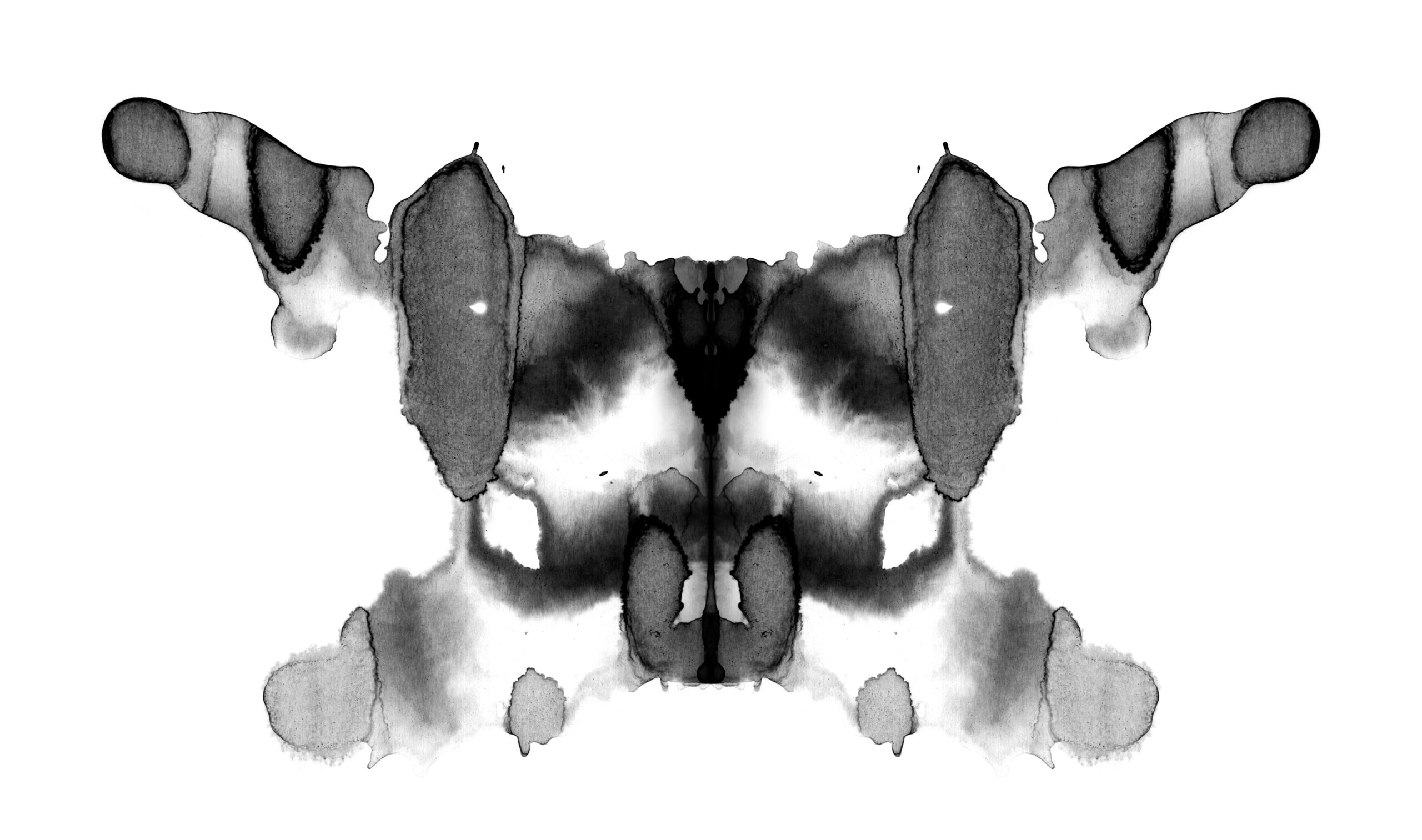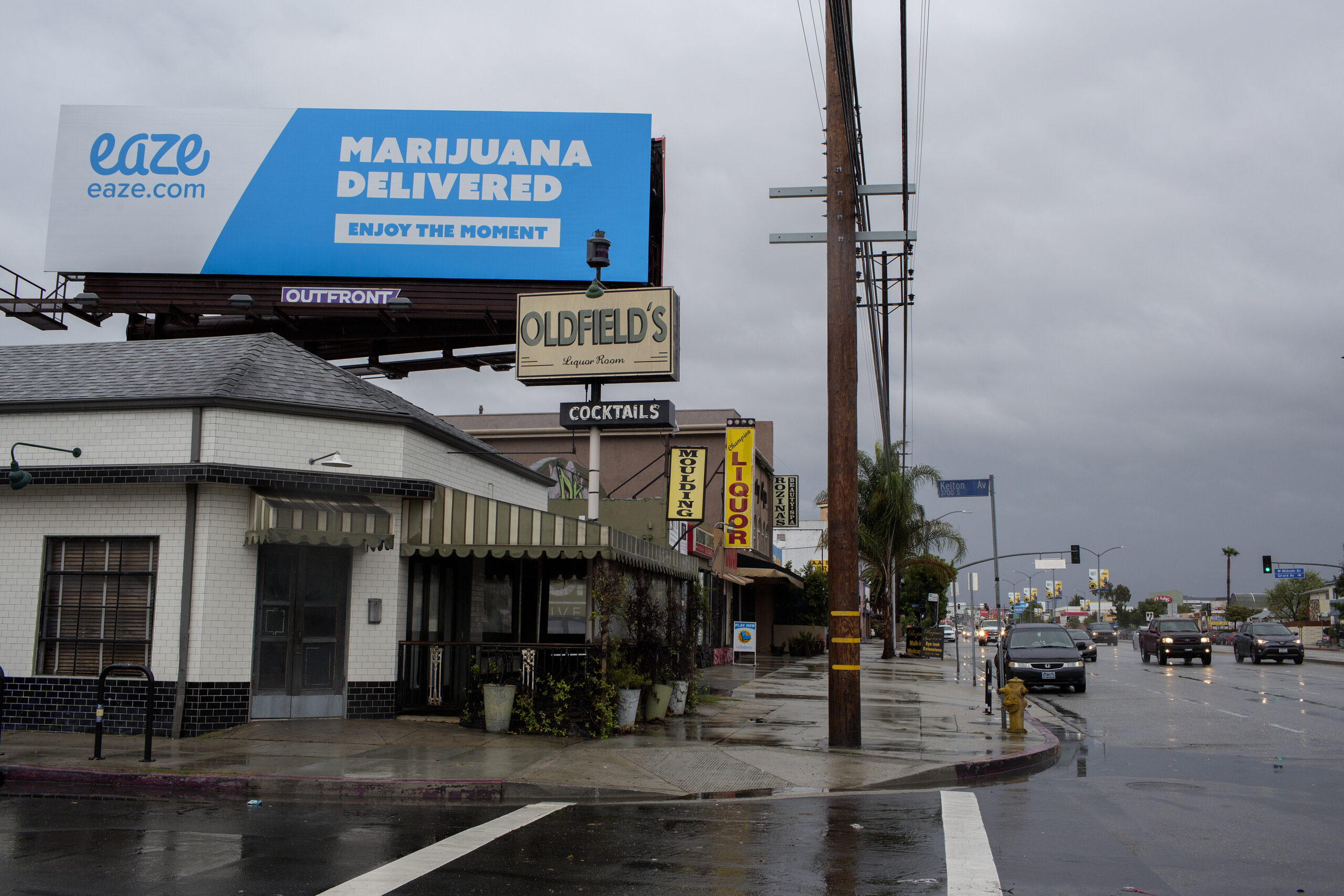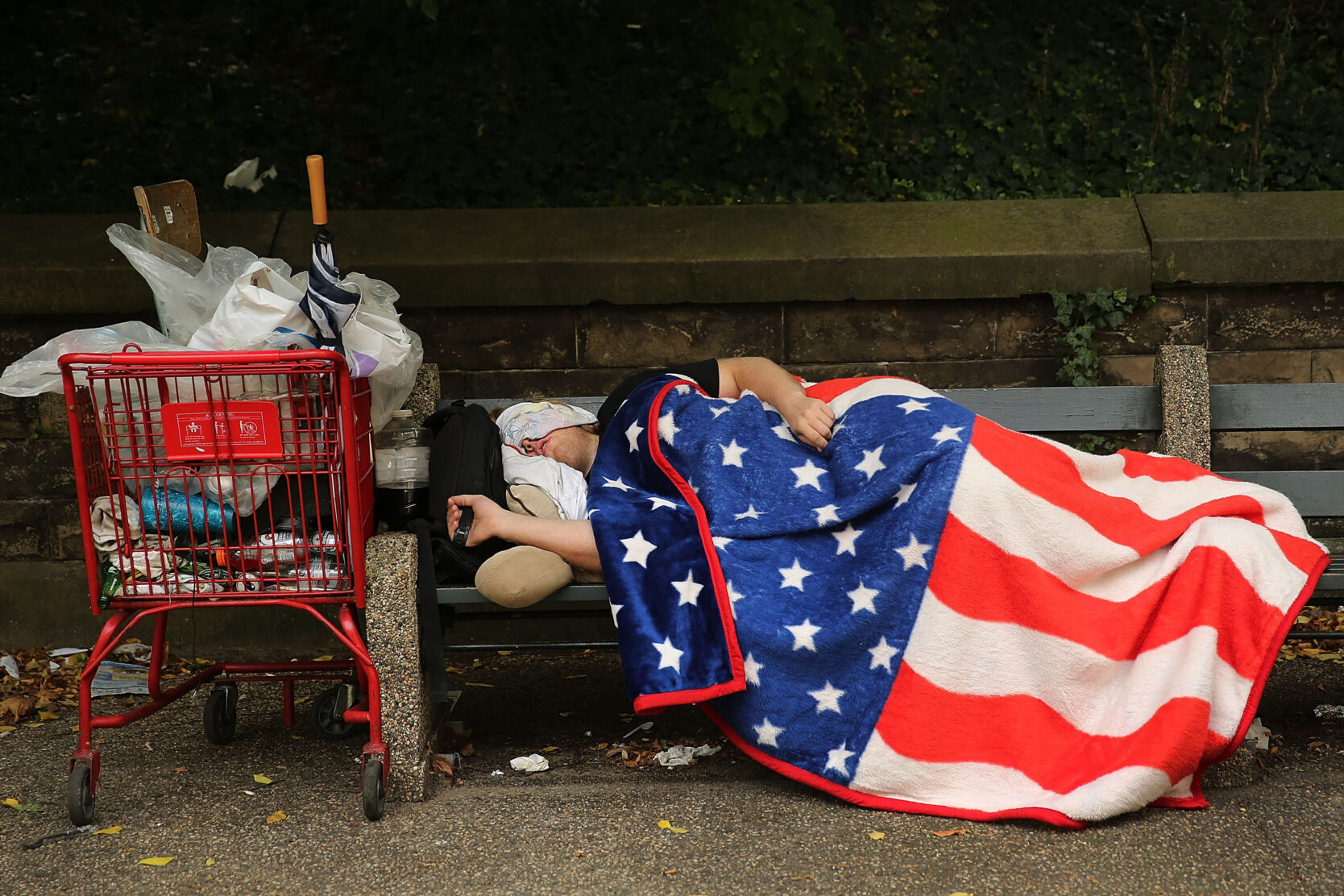“The period of subclinical signs and symptoms that precedes the onset of psychosis is referred to as the prodrome.”
– Expert Review of Neurotherapeutics
“What about the Devil?” asks Tim. The question interrupts a coworker, André, who’s been filling me in on need-to-know stuff.
André, my colleague in this supported-living facility, turns a steely gaze on Tim. He’s a resident in his late 50s. “Are you in reality?” asks André.
Tim grins, his pin-prick pupils zeroed on André. “The Devil’s close to perfect, isn’t he?”
André gets real stern. “Tim,” he says. “You’re not in reality. Where’s the place for that kind of talk?”
“My room?” asks Tim.
“Correct. In your room. Not out here.” André waves around the common area.
Tim’s grin fades. “Not out here?”
“No. Out here we’re in reality. So stop talking like that or go to your room.”
Tim is quiet. He steps away from us and holds his hands.
André smiles. “Funny guy,” he says, and turns back to me. “What were we talking about?”
“The weather,” I say. “You were telling me about the weather.”
“Oh yeah. It’s all controlled. They control the weather with giant microwave guns. Hurricanes, wildfires, droughts, floods — it’s all planned.”
Since moving to the U.S., I’ve learned to bite my tongue. Don’t know what to say anymore.
Leaning back in his chair, André stares up at me. “Don’t believe it, do you?” he says. “That everything is controlled.”
“No.”
He sighs. “It’s all planned, dude. They don’t let anything happen by accident.”
Tim hovers a few yards behind me.
Mental note: I should add “they control the weather with giant microwave guns” to a list of eyebrow-raising claims routinely, at times evangelistically, put to me by everyday Americans. As far as I’m aware, these Americans amidst whom I work, chill, and live, do not share Tim’s diagnosis of schizophrenia.

A random sampling of everyday assertions I hear from everyday Americans includes:
- Vladimir Putin is an American agent
- Getting struck by lightning makes people see the future
- Eating apricots cures cancer
- Communist scientists engineered the Covid vaccines to induce cravings for global Marxist dictatorship
- Left-wing Americans want pedophilia respected as a legitimate lifestyle choice
- America ordered the Russian invasion of Ukraine
- The Rockefellers replaced all real, effective medicines with inert plastic substitutes and made medical schools go along with this trick
- Security agencies fake or carry out most high-profile mass shootings
- The Book of Enoch outlines everything happening today
America is an imaginative country. Before moving here I associated such loose-wheeled thinking more exclusively with societies plagued by endemic poverty, lawlessness, and political violence — nations and regions where formal education has long been compromised and magical thinking maximized.
Over dinner at an Oregon wedding, the groom’s uncle asked if Australia’s homeless situation was much the same as here.
“How do you mean?” I said. “Like rampant? Mobs of people living under bridges and in parks and along sidewalks and all that? People in caves? Tweakers and zombies roaming ‘round?”
“Yeah. Same deal?” said the uncle, down from Seattle.
“Absolutely nothing like it. This is more like somewhere there’s been a war, or natural disaster.”
“Really?” he said. “So it’s different here. Huh.” He sat for a moment. “Really? Why?”
It really is different. Only in America, here in Oregon, while walking near the banks of a town river, has a bearded little man popped out of a tent and come striding straight at me, hatchet in one hand and hunting knife in the other, muttering obscenities, the inflamed flesh of his scalp growing over rows of staples.
“G’day,” I say. “I’m Matt.”
“Do you know what ‘Roy’ means?” he growls, his eyes like flint-encrusted buttholes. “In every language of the world, Roy means ‘king.’ That’s my name,” he says. “Roy.”
All spit and grimace, the king tells me he did a long stretch for beating near to death a relative he found sexually assaulting a young girl. “They should have given me a medal, but instead I got 18 years,” he says. Someone familiar with the local underworld later suggests the king has his script scrambled about which role he played in the attack on the girl.
My approach to journalism, to life, in this dirtbag arcadia, is that of an amateur anthropologist, and not the stuffy old kind who held themselves at a reserve, keeping clean while taking notes. To the contrary: It’s near impossible to learn, to absorb, to understand, without getting into the thick of it.
Hence, since immigrating to ‘Murica, I’ve started wearing mustaches and vests; I’m the proud owner of an AR-15 and a gas-guzzling HEMI V8; I spend my evenings drinking with the fire blazing, scrolling through online catalogs of shoulder holsters, and pondering changing my wardrobe to better conceal handguns.
And when a mid-term ballot measure passes in Oregon restricting magazines to 10 rounds, among other un-American attacks on our way of life, I am livid. For fuck’s sake! Assholes! I find myself agreeing with people I used to think were paranoid fantasists: surely no limits can be placed on a constitutional right. Especially by toss-bags who outvoted us but clearly don’t understand shit.
Going all mad prepper gets my blood up. It’s exciting.
Reminds me of how worked up my father got about Obamacare.
My Nebraskan-born dad had railed at Obama as a socialist and the Affordable Care Act as the apocalyptic Cubanization of America — but he did so from Sydney, Australia, where in the 1970s he and my mother had replanted our American family.
Then he needed a hernia operation and was afterwards dumbstruck at getting discharged from Sydney’s Royal North Shore Hospital with no bill whatsoever. “Didn’t cost me a dime!” he said, genuinely amazed. “And they treated me great!”
Duly fixed up and back home, he was immediately lounging in front of the idiot box, clutching a cold one and yelling at Obama for being a Communist.
We are but glitching simulations of intelligent life. Or that’s how it feels, although I guess in reality we’re just fucking crazy.
Realizing this — that Coke Zero causes cancer, but that eating apricots cures it; that Pfizer is a front organization for Marxist revolutionaries; that insane people should take their delusions to their rooms if they’re not going to sit around discussing sane stuff like how secret societies program the weather via giant microwaves — after realizing that such alternative facts are thick on the ground, I looked for guidance.
How best to understand this country? Should I re-read Howard Zinn’s proto-woke classic, A People’s History of the United States? Maybe Ann Coulter’s pre-January 6 prophetic masterwork, Treason: Liberal Treachery from the Cold War to the War on Terrorism. Should I spend more time in bars? Or I could staple my head and lurk by rivers with a tomahawk.
Not yet. Like any good doctor, I first need to form a diagnosis.

A quick Google of the signs and symptoms of being American takes me to WebMD: “What is Schizophrenia Prodrome?”
It turns out that America is in a prodromal state, a phase of creeping madness usually only diagnosed retrospectively: after the eruption of full-blown psychosis.
You might be in the prodrome, WebMD advises, if:
At least once a week within the past year, you have symptoms linked to psychosis — a break from reality. These can include things like:
-
- Strange thoughts
- Delusions (strong belief in things that aren’t true)
- Distrust of people
- Feeling like you’re better or smarter than others
Once a week? Lol.
Armed with a diagnosis, I turn to the writings and lectures of mental health activist R.D. Laing, the late Scottish psychiatrist who famously lived in group homes with unmedicated “mad” people, encouraged them to go as full-on mad as they had to, handed out psychedelic drugs to facilitate that process, and listened closely to the resulting babble, believing that “crazy talk” is a meaningful symbolic language.
Not a bad fit with living in America, where polling indicated that almost 50 million people believed that “the government, media, and financial worlds in the U.S. are controlled by a group of Satan-worshipping pedophiles who run a global child sex trafficking operation,” and towards 70 million people believed that “there is a storm coming soon that will sweep away the elites in power and restore the rightful leaders.”
A storm that will sweep Roy from the riverbanks and plant him on his throne, perhaps, as rightful king of Oregon, a patch of America where “the number of people … who are accused of crimes but cannot understand the charges against them due to psychosis has increased to what one state official called ‘record levels.’”
Or so Oregon Public Broadcasting would have us believe in its report on a bed shortage at the state psychiatric facility (the very same Salem campus where One Flew Over The Cuckoo’s Nest was filmed).
But should we believe it? After all, as I’ve heard time and again from the gainfully employed and tweakers alike: All mainstream news is made up.
So back to that canny R.D. Laing, who speaks directly to the U.S. of the 2020s in his 1968 lecture, “Intervention in Social Situations.” In this address to the Association of Family Caseworkers, Laing describes the challenge of simply trying to see where we’re at:
“No one in the situation knows what the situation is. If we stay in such a situation just a little, say for 90 minutes, we get more and more lost, confused, disoriented. People talk as though they knew what was going on; they have no idea, nor have we. They act as if they understand each other, when no one does.”
The situation Laing describes is — like America — a plummeting maze of dead ends: a broken thing we’re in, breaking down further.
To Laing, it is wrongheaded for a psychiatrist to work as a chemical mechanic, tinkering people out of mental illness with pharmaceuticals. The psychiatrist must instead be a social analyst, a hypersensitive reader of interpersonal pressures ranging from the very intimate forces within a family to the more de-individualized and indifferent gravitational forces of a society.
To Laing, the work of healing is the work of listening, and that was the main thing he did for his case studies: listen to them. “For many people in life, there’s no one listening to them. No one hears them; no one sees them. They feel quite rightly that they are ghosts,” he said.
So I follow Laing’s lead and listen to the madness — both that of my “sane” friends and colleagues, and that of schizophrenic Tim, who, by tapping his shirt and saying he has me in his pocket, to give another example, is saying — I think — that he keeps me in his heart.
But what does the giant microwave gun, apricot Rockefeller Putin pedophile line of madness in today’s prodromal America mean? And why is it all so paranoid?
I’m no puritan, no killjoy, but I suspect this might be tied to America’s massive love of getting wasted. America is way ahead of every other developed country in terms of the mounting pile of corpses from overdoses. Per capita, and in raw numbers. This is a country where more than 100,000 people now die per year from overdoses. That’s wild, and it helps account for Americans’ shortening life spans — something that also puts this country at odds with the rest of the developed world.
Being high is a way of life here, whether it’s the bum on the street or the “microdosing” IT ubermen of Palo Alto. Police recruitment drives fail, reportedly not for a shortage of applicants but for a shortage of applicants who can pass drug tests.
I’ve never met so many people either chasing an edge or trying to take the edge off, and doing so all the time.

A guy I know applied for a new job a few weeks back, and he faced a urine test as part of the hiring process. He is an everyday weed user, so in a classic of overlapping contemporary Americana, he asked his only non weed-using friend to pee for him in a tube which he slid into a concealed-carry belly-band holster.
Short of my coworker getting stripped or thoroughly patted down, the gat-strap would see him through.
Yet that THC-infused fellow lives thoroughly in delusional land, firmly believing that most mass shootings are elaborate pieces of theater staged by the government in a psy-op to buttress support for disarming rational Americans like himself. The horrendous Las Vegas massacre of 2017, however, in which an antisocial professional gambler killed 58 (with another two dying later) and injured several hundred, was not faked, the pee-smuggler declared, but rather perpetrated by Antifa as a hate crime against country music fans.
And that guy could talk Laing’s ear off.
So I turn to a less Romantic shrink: the late William Meissner, former Professor of Clinical Psychiatry at Harvard, Professor of Psychoanalysis at Boston College, and Jesuit priest.
In his classic tome, Psychotherapy and the Paranoid Process, Meissner gives ample attention to druggies and boozers, exploring addiction as a “narcissistic crisis” in which intoxicants are ego props for lives too emotionally fragile to face up to personal powerlessness.
The booze and drugs really flow, Meissner writes, when life’s brick walls, its external limitations, do their thing and leave a person flailing, their lack of power and control naked and exposed.
When the world says no, the addiction-prone person internally plummets in a way that is “overwhelming and total,” Messier writes. Their fall will be “accompanied by feelings of anger, rage, shame, guilt, boredom, loneliness, emptiness, or depression … defensive rejections,” and more.
The pain killer for such pain is pain killers: literally for the massive numbers of Americans hooked on opiates; but also weed and meth and whiskey and whatever gets you off day after day after day after day.
And with all this comes paranoia: the drive to fling self-loathing out of oneself, to avoid confronting personal failure and instead rail at persecution or control by malicious others.
Hence, one of the major new religions of America is Qanon, where millions follow the analects of Q — an apocalyptic gnosticism as comically stupid as what I hear every day here in America’s prodromal phase of creeping madness.
But I’m of this, too. I have needs. I have edges to take off. And edges to put on. I’m writing this from Vancouver, British Columbia, where things seems so orderly, so together, and so safe, that it’s freaking me out.
That’s why I’m crossing back to the prodromal mayhem zone, to edge city, where I’ll take extensive notes for this column. For you.
Until then, keep in mind that the Devil’s close to perfect; eat your apricots, hoard your guns, and chase the lightning.
This is America.





